
If you’re a veteran or military retiree looking for your next job, don’t limit your search to the United States. You can find excellent, lucrative positions overseas.
Edward Carn, a Navy retiree, did just that, and he is living in Saudi Arabia, working as a Repair Superintendent for ships assigned to the Western Fleet of the Saudi Navy. In our latest Expat Military Retiree interview profile, Edward explains why an overseas assignment could be a way to gain marketable job skills . . . or to accelerate your path to full retirement!
Contents (click to expand)
Where do you live?
Jeddah, Saudi Arabia
How long after military retirement did you relocate to Saudi Arabia?
I retired in 2010, finished up my degree in 2011, and jumped right into the job market. I moved to Saudi Arabia in March 2013.
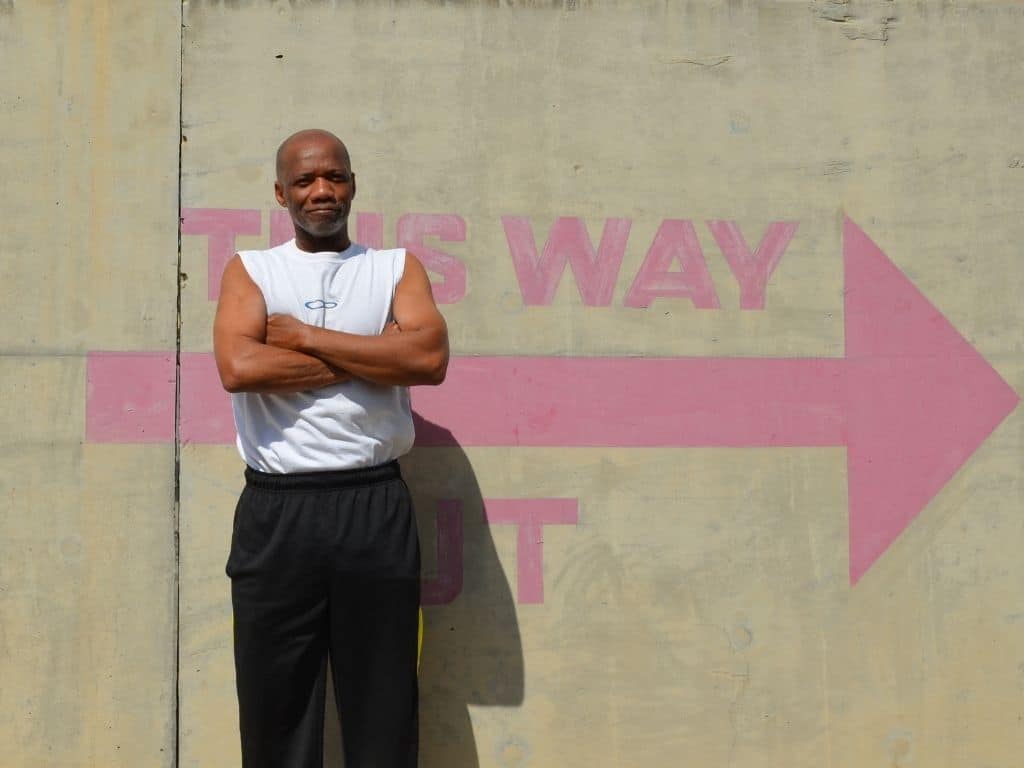
Why did you decide to work overseas after the military?
When I completed my BS, I was just seeking employment, not necessarily overseas. A few months prior to accepting this job, I had a Skype interview with Royal Caribbean for an onboard training manager position.
I thought I was a sure shot, with military experience and a BS in Workforce Training. But the recruiter kept asking about my experience on the civilian level.
Needless to say, I was not selected, which drove me to seek the needed experience for the civilian job market. I thought working overseas would give me somewhat of an advantage when applying for positions in the U.S.
How did you find your job in Saudi Arabia? Tell us about the application and hiring process.
I found this job on LinkedIn, within a Navy veterans group. A Navy veteran working in Riyadh was asked if he knew any former sailors with shipyard/repair experience who might want to come to Saudi Arabia to work directly under government contract. He posted a call out in our LinkedIn group for up to 10 positions, and I was one of three people who responded in a timely manner. My experience in the Navy “checked the boxes” they were looking for.
All communication was via email with the unit headquarters in Riyadh and the liaison officer in Philadelphia. It was very quick. From the time I responded with interest and submission of my resume to credible job offer was just over 10 days.
Once that process was completed, there were some additional documents to supply, such as an updated medical exam and a background investigation report from the police. Also, all of my work experience and certification documents required the signature of the United States Secretary of State (with a seal).
After my package was submitted and accepted, then we discussed report date. Position salary was discussed in the first part of the process after acceptance of resume and skills.
How did you get the visa to live in Saudi Arabia?
My visa is a work visa handled by my employers. All expats working in Saudi Arabia must have an Igama, similar to a resident card. My employer covers the yearly renewal fee of 500 SAR ($133).
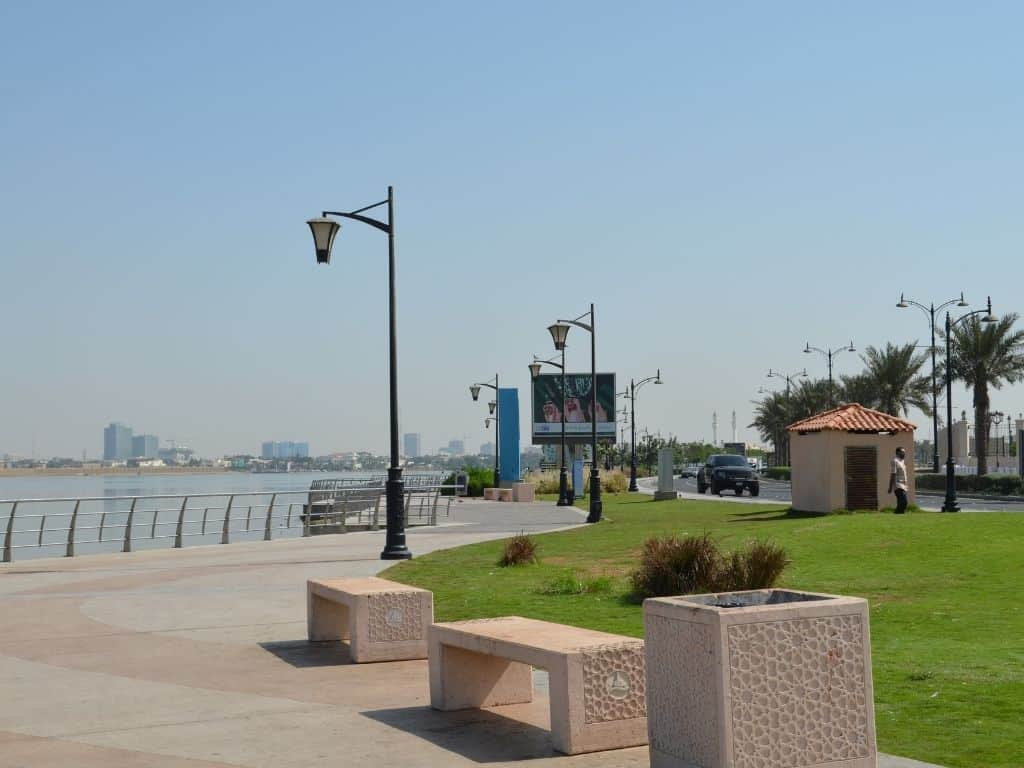
What’s the difference between working in Saudi Arabia for a contractor vs. as a foreign direct hire?
I’ll illustrate with a few examples.
When I arrived here in Jeddah, I was hired as the assistant repair superintendent to an American who was working under a contract for a company based in Saudi Arabia. This American had worked on the same contract for over 22 years, yet when I stepped into the office as his assistant, my monthly salary was $1200 more than my supervisor was pulling in.
His contract was based on five-year renewals. My contract is yearly with a guaranteed increase of $3100 (except in two of the years, when worldwide oil prices were very low).
Also, my supervisor had monthly fuel allowance, meaning if he used up his allowance before the end of the month, then he would have to pay out of pocket. For me, unlimited fuel. I could gas up every day and not pay.
Time off was much easier for me If I needed it, but I never took time off. Going back to the States, I usually ask for 3-4 days non-chargeable leave to be included with my vacation, and I’ve never been turned down. My supervisor could not do this; his company would charge him annual leave.
Two other Americans working in Saudi Arabia have asked me to work with their U.S.-based companies here in Saudi Arabia (Raytheon and Booz Allen). While the latter would have given me a greater salary, I’m satisfied where I’m at. I’m well-respected, treated well, and taken care of. For me it’s not always about the money, the benefits are great also!
What other benefits come with your position in Jeddah? Was your wife able to accompany you?
I will receive an end-of-contract award bonus, which is a function of my monthly salary and total years of service. I will also receive a food and transportation end-of-contract award.
Another benefit I enjoy is round trip airfare to the U.S., but I must fly the country flag carrier, Saudi Arabian Airlines.
I moved here by myself. My wife has invested over 20 years at her current job with benefits, so we decided that I go solo. I return to the U.S. at least every 8 months.
Tell us about expat life in Saudi Arabia. Where do you live? What’s a typical week like? Are there fun things to do in Jeddah?
I live in the seaport city of Jeddah along the Red Sea, between the city central area and the airport. I live in a two-bedroom apartment (the term “villa” is used here) located inside a secure compound with armed guards at the entrance and exit point.
My work days are Sunday – Thursday, plus at least one Saturday per month. I work 0700-1500. My free time is spent mostly working out at the gym inside my compound, running, reading, and following the national news.
There are several malls in the city, four within a 10-minute drive of my compound. Nearly every major American franchise has a shop in Jeddah, most with delivery service. Nightlife (as we know it) does not exist in Saudi Arabia.
Do you have many friends from the local population, or do you primarily socialize with other expats in Jeddah?
I landed in Jeddah in March 2013 and remain the only American on this government contract; as a matter of fact I’m the only American in the entire facility. Most of my associates are natives or other expats.
I have been invited for dinner a few times to share local dishes, but I have never met the female of the house; it’s not done in this culture. Two years ago I was invited to and attended a Saudi wedding.
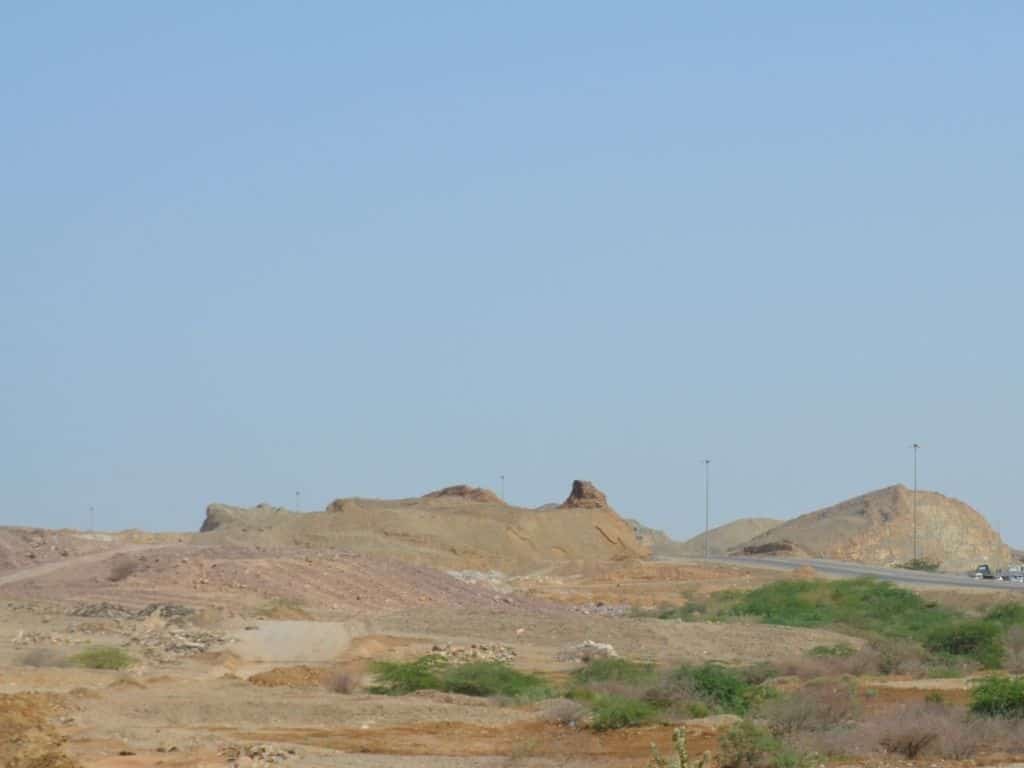
How does the cost of living in Saudi Arabia compare to the U.S.? For example, how much is the rent for a 2-bedroom apartment, a bag of groceries, or a beer at a local bar?
I would say the cost is much lower here than in the U.S. Fruits and vegetables, and certain meats, are lower. My average weekly grocery bag is $25-$30. But we also get American homegrown products here (with a hefty import fee).
I’m unsure about apartment rental prices here because my apartment is rent-free, which includes utilities. Fuel for my issued car is free.
Beer, local bar . . . not in Saudi Arabia. However, most of the Western compounds (not to include the one I live in) have their own happy hour(s).
Eating out lunch/dinner can be a little expensive. I normally go out about once a month when I’m not in the mood to turn on the oven, and the cost just for me is about $18-$20.
Where do you get your health care and dental care? Do you have any kind of local insurance plan?
Health and dental care (not to include eye exams or tooth extractions), are covered under my contract free of charge. I’m able to go to the small medical facility located near my work area or to the government hospital, which is located between my compound and work site.
Do you speak Arabic? If not, is it difficult to navigate daily life?
I only speak a few words of the language. Most Saudis speak some English and are able to communicate basic functional language. It’s not at all difficult to navigate in the city or the outskirts, as all signs are in Arabic and English.
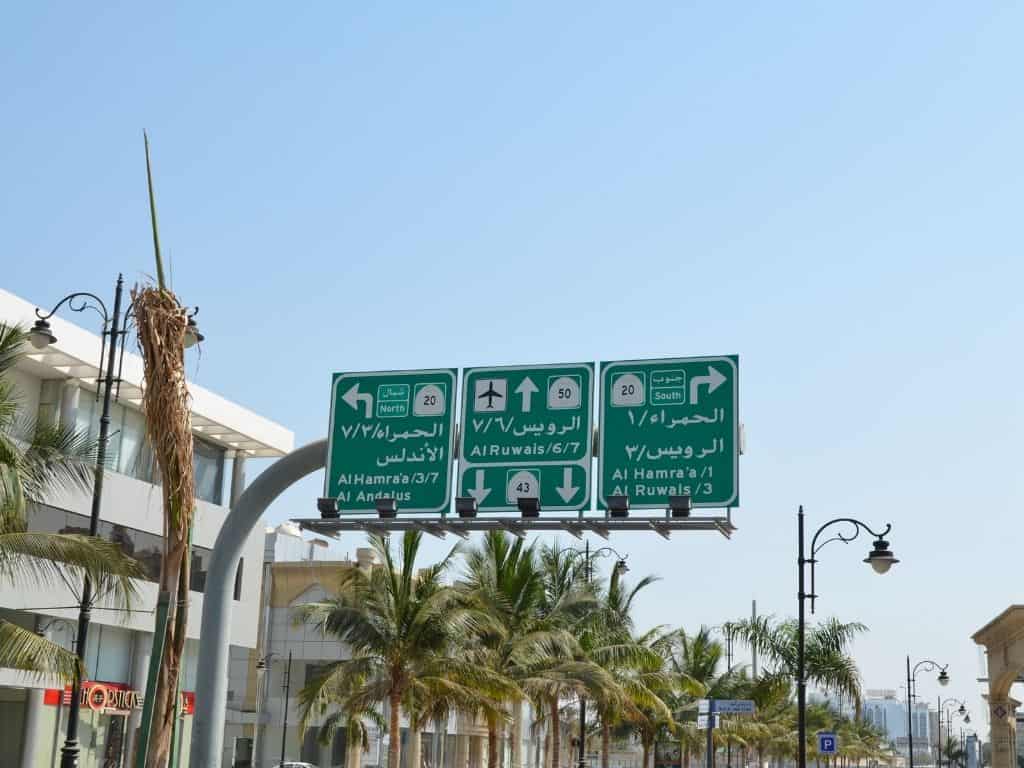
What do you like about living overseas, and specifically, about expat life in Jeddah?
I like the opportunities to meet people from all over the world and share cultures.
Jeddah is somewhat modern, with most gadgets available here that you would find back in the U.S.
Also, the culture has been going through some drastic changes in recent years. The changes are needed for the country to keep up with the ever-changing times and the world outside of Saudi Arabia. Females were granted the right to drive in 2018, which was really big here, really big.
Slowly, the country is trying to get away from 100% dependency on oil. AMC Theaters has begun opening movie theaters in Saudi Arabia. SeaWorld is negotiating for a huge water park here in Jeddah. There is also talk about a large sea resort along the Red Sea over the next few years.
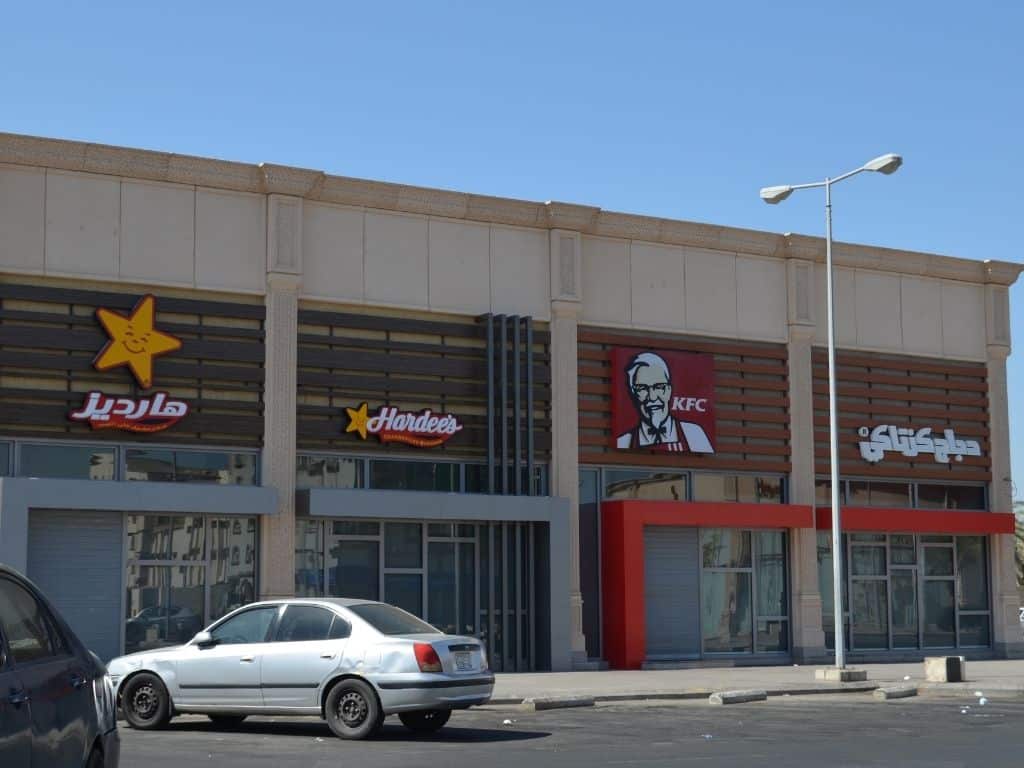
What are some challenges of being an expat and/or living in Jeddah, Saudi Arabia?
Nothing is done in a timely manner; even the small, simple tasks are normally ballooned.
The driving is very, very reckless here. A total disregard for traffic laws and the traffic authorities.
What advice would you give to a veteran who is interested in working overseas? Anything specific to working in Saudi Arabia or the Middle East?
Read, research, investigate, and ask questions in online groups, especially if you have never visited or been stationed in a country where you will work.
As in my case, especially here in the Middle East, seek positions where you would be employed by the host country, not as a contractor. I work specifically for the Saudi Arabia military. Believe me, there is a huge difference here, depending on who employs you. I’m not sure I would do anything different. I was thankful that I had a Navy Veteran already working for the Saudi government who gave me great help/support during the process.
Saudi Arabia is a good country to work/live in, but it must not be compared to Germany or Japan (for obvious reasons). Lots of people from the West forget that when they arrive here. One must understand completely about the culture of this country before they think about taking a job here.
Also, ensure that quality medical care is available and is covered in the contract. I have not had to use my TRICARE while living in Jeddah. However, I have been seen for medical care and therapy by caregivers who were trained in the U.S.
Also of note, Saudi Arabia is going through a process called “Saudization,” in which the Ministry of Labor is required to fill an increasing number of jobs by Saudi citizens. Because of Saudization, it will be extremely hard for Americans to come on this contract in the future.
Want to learn more about living abroad after your military career? Join our Facebook group U.S. Military Retirees and Veterans Living Overseas.
What are your longer-term plans? You moved to Saudi Arabia to gain experience for the U.S. job market. Do you intend to return to the U.S. and work?
My original plan was to stay here at least two years, then take my skills back to the U.S. But during this period, while reviewing similar jobs in the U.S., I noticed a salary discrepancy compared to my salary in Saudi Arabia.
Also, talking with my wife, a few more years here would equal about six additional working years there in the U.S. To put it another way, I would have to work until my early 60’s instead of my current plan of mid- to late 50’s.
Another point to make: I watched the labor market in my profession dwindle due to lack of ship repair contracts, or contracts out of the Florida area. It was somewhat of a tough decision to leave a paying job here to go back and look for positions back in the States.
My goal is to serve at least two more one-year contracts. After my final contract (and last job) it’s space-A bound! I flew space-A many times while on active duty, but none as a retiree. It will be wonderful not to worry about sitting around a terminal burning leave days. I can’t wait!
If you are a retired veteran living overseas and want to share your experiences as part of the series, please send an e-mail to stephanie@poppinsmoke.com.
